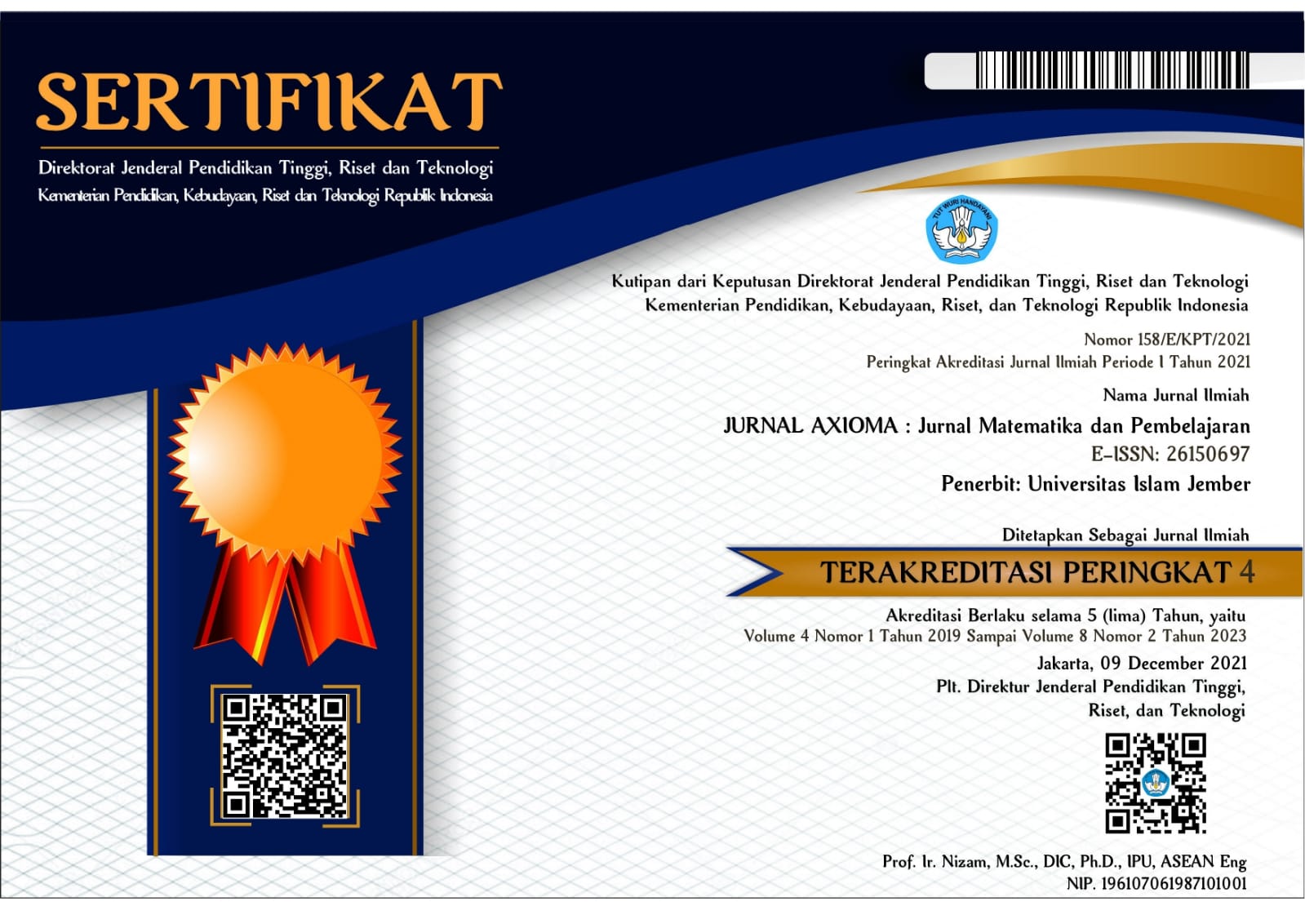Pengaruh Model Problem Based Learning (PBL) Berbasis Etnomatematika terhadap Kemampuan Numerasi Siswa SMP
DOI:
https://doi.org/10.56013/axi.v10i1.3691Abstract
This study aims to determine the effect of the Ethnomathematics-Based Problem-Based Learning (PBL) model on the numeracy skills of 8th-grade students at SMP Negeri 15 Pekanbaru. The research employs a quasi-experimental design with a pretest-posttest control group. The sample consists of two classes selected through random sampling: an experimental class taught using the ethnomathematics-based PBL model and a control class taught using conventional learning methods. After conducting the normality test, the post-test significance value for the control class was found to be 0.004, which is smaller than the significance level of 0.05 (0.004 < 0.05). Thus, the data are not normally distributed. Since one of the datasets is not normally distributed, a non-parametric Mann-Whitney U test was performed. The test results show an Asymp. Sig. (2-tailed) value of 0.000, which is smaller than the significance level of 0.05 (0.000 < 0.05). Therefore, H1 is accepted, and H0 is rejected. This indicates a difference in the average numeracy skills between the experimental class and the control class. In other words, the average numeracy skills of students using the Ethnomathematics-Based Problem-Based Learning (PBL) model are better than those of students using the conventional learning model. Hence, the ethnomathematics-based Problem-Based Learning (PBL) model positively impacts the numeracy skills of 8th-grade students at SMP Negeri 15 Pekanbaru.
Keywords: Problem Based Learning, Ethnomathematics, Numeracy Skills


2.jpg)
.jpg)











